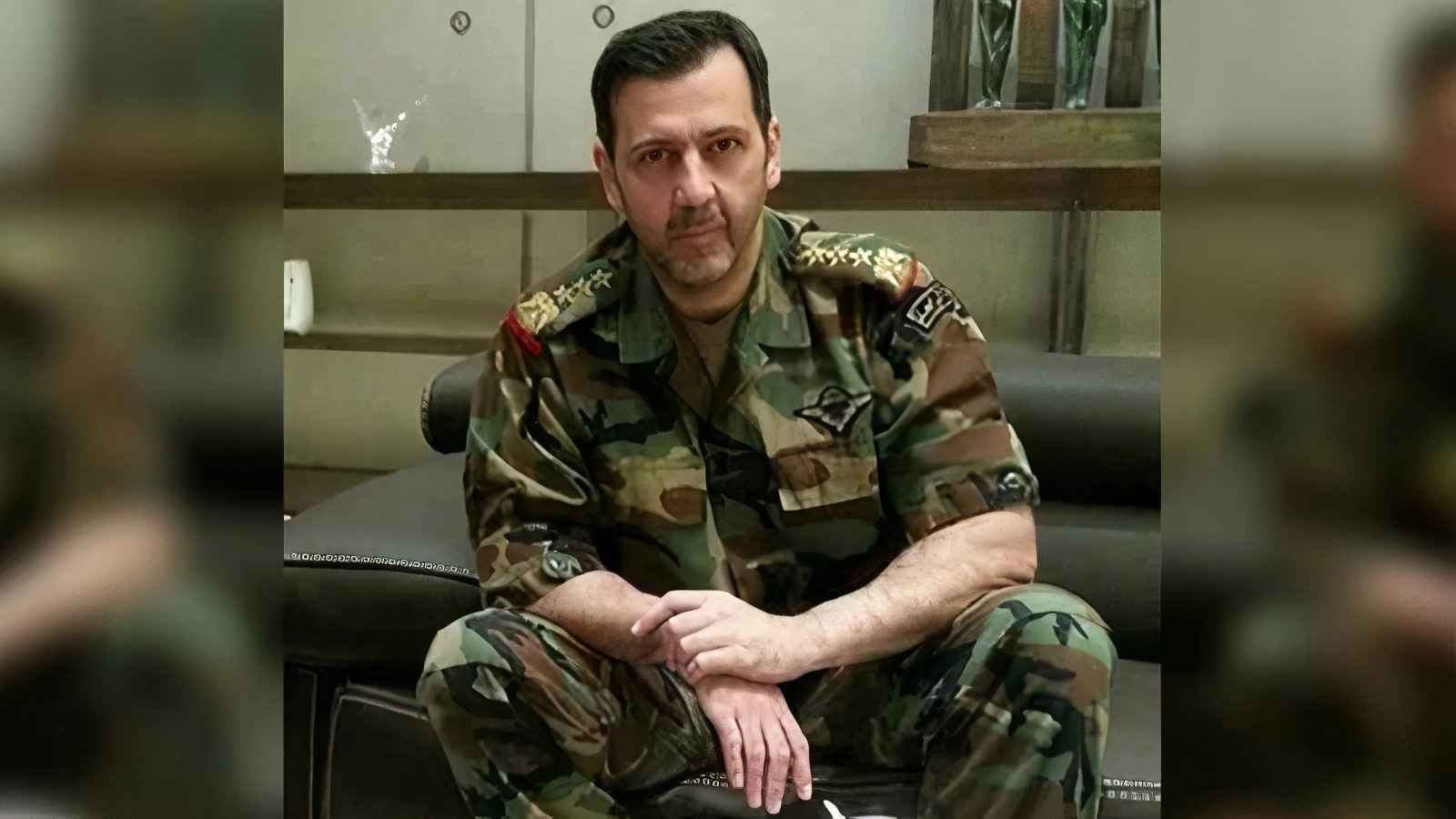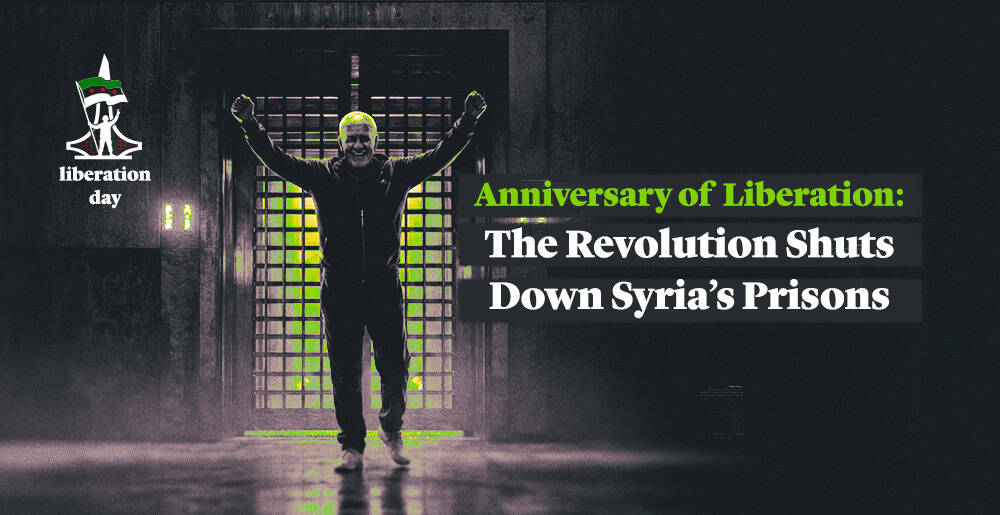Where Is Maher al-Assad? Mystery Surrounds His Alleged Arrival in Iraq

Iraqi sources suggest that Maher al-Assad may be staying at Falih al-Fayyadh’s residence in Baghdad.
While Bashar al-Assad’s escape to Russia was confirmed just a day after fleeing Syria, the whereabouts of his brother, Maher al-Assad, remain unclear. Maher, who disappeared as armed factions seized control of Damascus and toppled the regime, has not been seen publicly since.
On December 8, 2024, Bashar al-Assad fled Syria, with Russia announcing the next day that it had granted him humanitarian asylum. However, Moscow made no mention of Maher al-Assad, who previously commanded the Fourth Armored Division responsible for safeguarding Damascus and the Presidential Palace.
Iraq?
Both international and local reports, along with accounts from Syrian and Iraqi activists and journalists, suggest that Maher fled to Iraq. This narrative persists despite denials from Iraqi Prime Minister Mohammed Shia al-Sudani and the Ministry of Interior.
Assad didn't even inform his younger brother, Maher, commander of the Army's elite 4th Armoured Division, about his exit plan, three aides told Reuters. “Maher flew a helicopter to Iraq and then to Russia,” one of the people said.
Rami Abdulrahman, director of the Syrian Observatory for Human Rights, stated on December 17 that Maher is currently in Russia following a brief stay in Iraq. This account aligns with the report of his helicopter evacuation.
Iraqi authorities, however, have refuted these reports. On December 16, Interior Ministry spokesman Brigadier General Muqdad Miri told the official Iraqi news agency that “claims on social media regarding Maher al-Assad’s presence in Iraq are baseless.”
Some Arab media outlets have speculated that Maher may be in Sulaymaniyah, a city in Iraq’s Kurdistan region, hosted by Bafel Talabani, the pro-Iran leader of the Patriotic Union of Kurdistan (PUK). Other reports suggest he might have relocated to the Qandil Mountains, a known stronghold of the Kurdistan Workers’ Party (PKK).
Saudi Arabia’s Asharq al-Awsat cited an unnamed security official in Sulaymaniyah who dismissed these claims. The official stated on December 17 that “there is no record of Maher entering Sulaymaniyah by land or air,” asserting that Maher had not entered the city or traveled through it to Iran.
As speculation swirls and denials persist, Maher al-Assad’s location remains a subject of intrigue, raising questions about his fate and future role in the region’s shifting dynamics.
“Bashar is finished, but Maher is not. Pursue him and his gang by all means before it’s too late. It’s said he’s in Iraq now. Time will tell. Consider this a warning,” Syrian journalist Faisal al-Kasim posted on X.
In a televised interview on December 27, Iraqi Prime Minister Mohammed Shia’ al-Sudani stated, “Maher al-Assad has not entered Iraq since the fall of the Syrian regime, contrary to the rumors and media reports.”

A Guest at Fayyadh's?
Amid ongoing speculation, reports within Iraqi political circles suggest that Maher al-Assad entered Iraq on the night the Syrian regime fell. Allegedly, he reached Baghdad and sought refuge in the Green Zone, specifically at the residence of Falih al-Fayyadh, head of the Popular Mobilization Forces (PMF).
Iraqi media sources, speaking anonymously to Al-Estiklal, claimed that “politicians and journalists within the Green Zone are circulating reports of Maher’s presence, hosted by Falih al-Fayyadh.” These sources highlighted Fayyadh’s strong ties to the former Syrian regime, citing his regular visits to Damascus over the years, often delivering messages from successive Iraqi governments to Bashar al-Assad during Syria’s civil war (2011–2024).
Fayyadh’s most recent visit to Syria took place on May 6, 2024, when he met the ousted head of the Syrian regime—his first meeting under Iraqi Prime Minister Mohammed Shia’ al-Sudani’s government.
On December 16, Erem News published a report citing a senior Iraqi source who alleged that “Falih al-Fayyadh has been hosting Maher al-Assad for several days in the Green Zone.” The report claimed Maher arrived in a convoy of tinted vehicles with the cooperation of Iraqi authorities on the night Damascus fell to opposition factions.
The report also mentioned that Maher met with several leaders of Iraqi armed factions, including Qais Khazali, leader of Asa’ib Ahl al-Haq, to discuss recent developments in Syria.
With Maher's whereabouts still a mystery, reports hint at a drop in security around his Green Zone hideout, suggesting he may have left, while Fayyadh reassures Prime Minister al-Sudani that his stay was only temporary.
As of January 6, 2025, the PMF has not issued any statements addressing reports of Maher al-Assad’s alleged stay at Falih al-Fayyadh’s residence in Baghdad.

War Criminal
Maher al-Assad, 54, is pursued by the current Syrian authorities as a key figure of the former regime led by his brother Bashar al-Assad. He is accused of committing crimes against Syrians since the uprising began in 2011, particularly chemical attacks on opposition-held areas.
Since 2011, Maher has been listed under British, European, Canadian, and American sanctions for the atrocities committed by the Fourth Division, which he commanded, in regions such as Daraa, Homs, and Damascus suburbs. These actions earned him the nickname “The Butcher of Daraa.”
In 2022, French authorities issued an international arrest warrant for Maher, his brother, and two other military officers on charges of complicity in war crimes and crimes against humanity. The charges include a chemical attack on opposition-controlled Damascus suburbs in 2013.
Since the start of the Syrian revolution, the Fourth Division, a branch of the former Syrian army, has charted an independent course, aligning itself closely with Iran. Unlike other forces that followed Russian directives after Moscow’s military intervention, the Fourth Division refused to operate under orders from the Russian Hmeimim Airbase in Latakia.
The division, composed predominantly of Alawite personnel loyal to Maher, has focused on protecting the Assad family, controlling internal trade routes across Syria, and maintaining strong ties with Hezbollah and Iranian-backed militias.
Born in 1967, Maher is married to Manal Jadaan, a Sunni, and is a mysterious, rarely seen figure known as “The Master.” His popularity within the Alawite sect rivals, and perhaps even surpasses, that of his elder brother Bashar. Maher holds a bachelor’s degree in mechanical engineering from Damascus University and later trained at the military academy, eventually serving in the armored Fourth Division. While widely recognized as a brigadier general, military sources reported his promotion to major general in 2017.

The Fourth Division originated from remnants of the Defense Companies, a military unit created and commanded by Rifaat al-Assad, the brother of former president Hafez al-Assad. The Defense Companies were dissolved in 1984 after Hafez successfully exiled Rifaat to prevent an armed confrontation following Rifaat’s failed coup attempt. Hafez, who had seized power in a 1971 coup, led the regime until his death in 2000.
Maher al-Assad is accused of orchestrating a pivotal event that shook Syria and the world. On July 18, 2012, a mysterious bombing targeted a meeting of the “Crisis Cell” at the National Security Bureau in the upscale al-Rawda district of Damascus. The attack killed the head of the National Security Bureau, General Hisham Ikhtiyar, along with four other key figures of the regime, including then-Deputy Minister of Defense Assef Shawkat, Bashar's brother-in-law. Some of these figures had even advocated for handing over power from Bashar Assad due to the ongoing revolution.
In 1999, Maher al-Assad made headlines after allegedly shooting his brother-in-law Assef Shawkat during a heated dispute, leaving Shawkat injured and flown to a military hospital in France for treatment.
Despite this incident, Maher strengthened his position within the Syrian regime. In June 2000, he was elected to the Central Committee of the Arab Socialist Ba'ath Party, further solidifying his growing influence in the system.
The Fourth Division also leads the drug trade in Syria, particularly the production of Captagon pills. Videos shared by Syrian activists and Arab media outlets have revealed the locations and quantities of drugs stored in the Division's headquarters after the fall of the Assad regime on December 8, 2024.
A June 21, 2022, investigation published by Spiegel International exposed the Syrian regime’s involvement in drug trafficking through military units, led by the Fourth Division. In 2021 alone, the drug trade was estimated to be worth over $5.7 billion.
Sources
- Assad's final hours in Syria: Deception, despair and flight
- Iraq denies presence of Maher al-Assad, brother of former Syrian president, on its territory [Arabic]
- Conflicting news about Maher al-Assad's presence in Iraq [Arabic]
- Arrest of Syrian Officials Sparks Iraqi Speculation About Maher al-Assad’s Fate [Arabic]
- Exclusive - Head of the Popular Mobilization Forces in Iraq hosted Maher al-Assad [Arabic]
- Maher al-Assad: The "Family Guardian" and "Butcher of Daraa" – Who Is He? [Arabic]
- Iraqi Popular Mobilization Leader Meets Bashar al-Assad in Damascus [Arabic]












